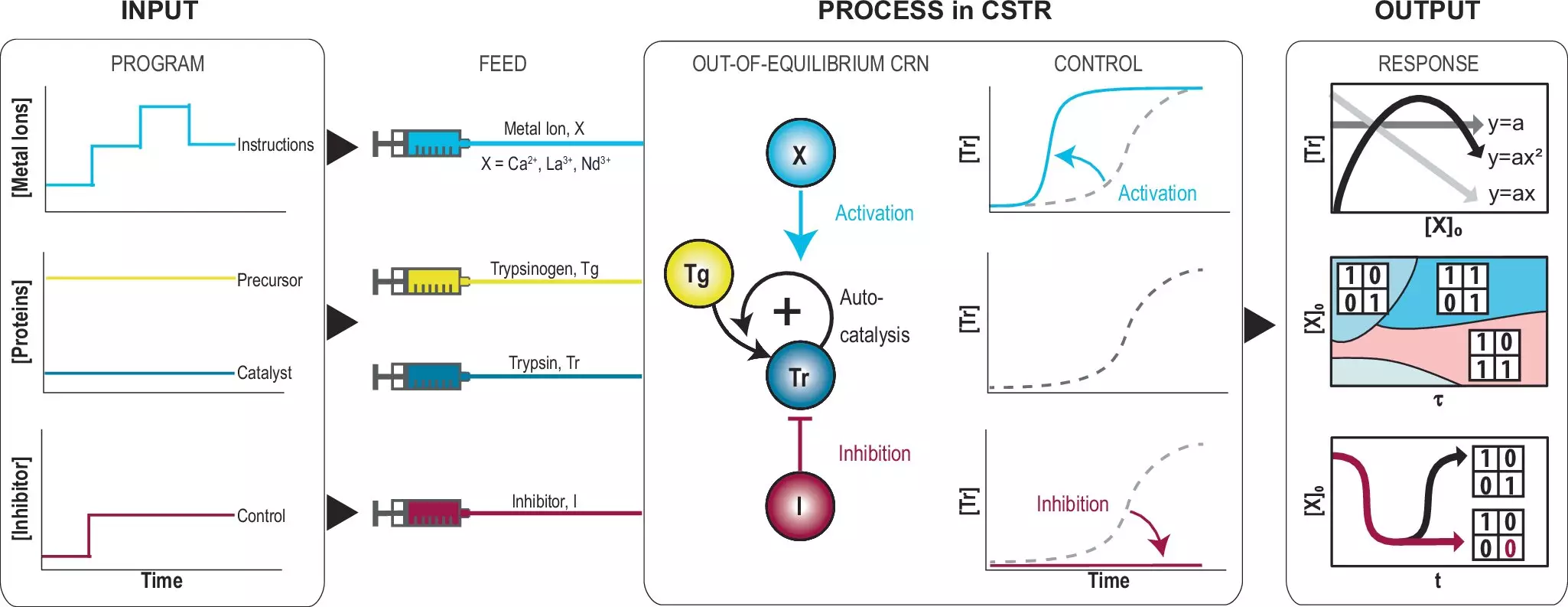

In a groundbreaking study, scientists at the University of Twente have unveiled a novel approach to managing chemical reactions through the manipulation of metal ions. This pivotal development may pave the way for computers that emulate the cognitive capabilities of the human brain, presenting exciting implications for the evolution of artificial intelligence. Their work has been formally shared in the esteemed journal, Nature Communications.
Conventional digital computers operate on processing power derived from binary systems, which require substantial energy consumption. In stark contrast, living organisms achieve information processing through intricate chemical reactions that facilitate environmental responses while utilizing significantly less energy. Over the years, the scientific community has made continuous efforts to replicate these natural processes through molecular means. This research represents a significant leap forward, demonstrating the potential for simulating sophisticated mathematical functions—specifically through the modulation of metal ions.
The University of Twente’s researchers successfully mirrored complex mathematical operations, ranging from basic polynomials like linear equations and parabolas to intricate Boolean logic functions. Notably, this investigation revealed the ability to mold chemical reactions that not only adapt to their immediate conditions but also possess the capacity for “memory,” allowing them to retain information about previous reactions. This insight prompts a reevaluation of how chemical systems can be utilized beyond traditional boundaries.
As stated by researcher Albert Wong, “We have found a possible building block for intelligent systems.” This assertion points towards significant advancements in the understanding of autocatalytic reactions—chemical processes that accelerate based on their products. Such a capability is reflected in their work, where they showcased a method to transform trypsinogen into trypsin while incorporating an inhibitor that controls the rate of this conversion. The result is a dual-state system that could theoretically “remember” its previous phase, thus functioning as a rudimentary memory device.
The ramifications of this discovery extend far beyond the confines of chemical theory. It heralds new horizons for programming simpler chemical networks that could be integral to the evolution of intelligent materials and systems. The applications of this research hold profound implications for fields such as nanobiotechnology, where understanding chemical origins could provide insight into life’s beginnings. Additionally, the idea of combining chemistry with computational principles might revolutionize how we conceptualize intelligent systems, merging physical matter with designed intelligence.
The work conducted by the University of Twente’s researchers not only serves as a crucial step toward mimicking biological processes in artificial constructs but also encourages a reimagination of the interplay between chemistry and computational intelligence. As the boundaries blur, the future of technology may very well lie within the intricate tapestry of chemical reactions guided by the remarkable capabilities of metal ions.
Despite the term "rare," rare earth metals (REMs) are not nearly as scarce as their…
A collaboration led by Rutgers University-New Brunswick has initiated a paradigm shift in our understanding…
Natural gas leaks are a growing concern in both urban and rural settings, with potential…
Recent groundbreaking research at the University of Vienna has unveiled a novel interplay of forces…
In recent years, perovskites have garnered significant attention in the fields of materials science and…
For decades, astronomers have probed the depths of the Milky Way, grappling with two perplexing…
This website uses cookies.